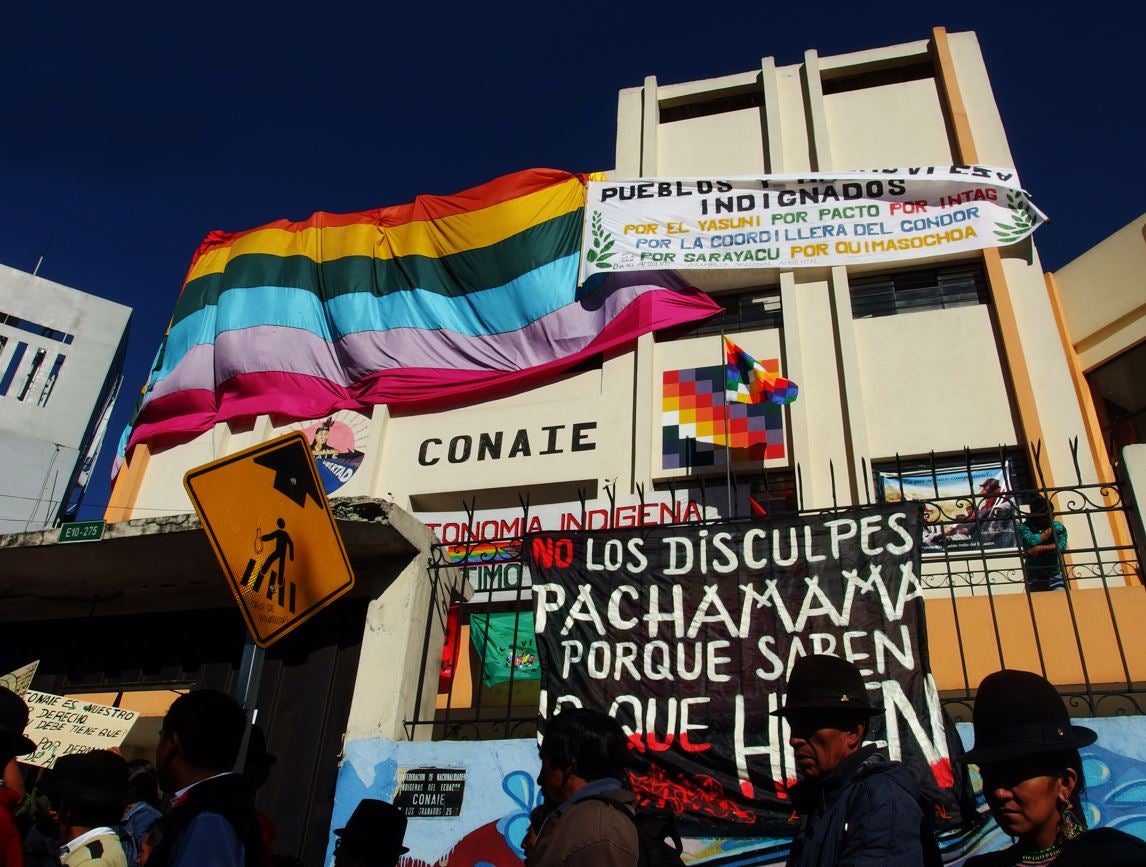The Autonomous University of Barcelona found that of all environmental disputes regarding indigenous peoples, such as the one pictured in Quito, Ecuador, 24.7% relate to mining. Credit: Diego Sugoniaev via Shutterstock
A study from Spain’s Universitat Autònoma de Barcelona has found that, globally, 24.7% of environmental conflicts involving indigenous peoples have been caused by mining.
Most disputes arose from the mining sector, with a total of 258 observed conflicts. The research paper says that these disputes and violations arise despite the legislation in the UN Declaration on the Rights of Indigenous Peoples.
The research found that 35% of all documented environmental conflicts involving extraction and industrial development involve indigenous peoples. This is despite indigenous people making up only 6.4% of the global population.
“The actual number of affected Indigenous groups is expected to be much higher, particularly when considering that some regions have limited data coverage. Furthermore, an additional 7% of conflict cases involve other non-Indigenous place-based communities with long-term connections to their lands,” the paper reads.
The study from the university’s Institute of Environmental Science and Technology also stated that the burdens of mining and development “jeopardize Indigenous rights and impede the realization of global environmental justice”. Miners impose burdens such as land dispossession, biodiversity loss, surface water pollution, livelihood loss and soil degradation, among others, on the indigenous populations.
The paper used data from the Environmental Justice Atlas (EJA), which compiled 3,081 environmental conflicts. One such conflict examined by the EJA is the Oak Flat copper mine case. Progress is currently halted on the mine due to a review of the land swap that would facilitate it. The land swap would mean the mine can be built on a site of religious significance for local indigenous groups. The EJA stated that impacts on the local Apache groups caused by the dispute on the Oak Flat territory include loss of biodiversity, soil contamination, deforestation and decreasing water quality. Additionally, it posits that the case itself is causing mental health issues and an increase in violence and crime.
This article was published by: Alex Donaldson
Visit the original article here


